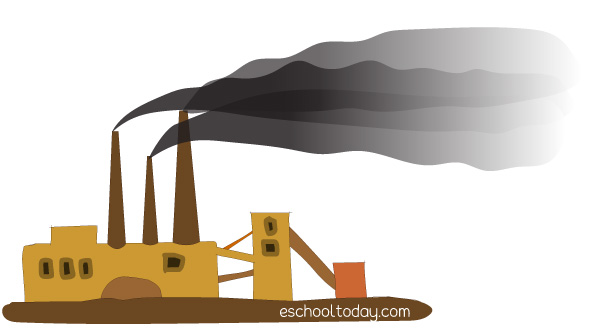- Air Pollution
What causes air pollution?
Air pollution can result from both human and natural actions. Natural events that pollute the air include forest fires, volcanic eruptions, wind erosion, pollen dispersal, evaporation of organic compounds, and natural radioactivity. Pollution from natural occurrences is not very often.
Human activities that result in air pollution include:
1. Emissions from industries and manufacturing activities

Consider a typical manufacturing plant: You will notice that there are long tubes (called chimneys) erected high into the air, with lots of smoke and fumes coming out of it. Waste incinerators, manufacturing industries, and power plants emit high levels of carbon monoxide, organic compounds, and chemicals into the air. It happens almost everywhere that people live. Petroleum refineries also release lots of hydrocarbons into the air.
2. Burning Fossil Fuels
After the industrial age, transportation has become a key part of our lives. Cars and heavy-duty trucks, trains, shipping vessels, and airplanes all burn lots of fossil fuels to work. Emissions from automobile engines contain both primary and secondary pollutants. That is a major cause of pollution and one that is very difficult to manage, as humans rely heavily on vehicles and engines for transporting people, goods, and services.
Fumes from car exhausts contain dangerous gases such as carbon monoxide, oxides of nitrogen, hydrocarbons, and particulates. On their own, they cause harm to people who breathe them. Additionally, they react with environmental gases to create more toxic gases.

3. Household and Farming Chemicals
Crop dusting, fumigating homes, household cleaning products or painting supplies, over-the-counter insect/pest killers, and fertilizer dust emit harmful chemicals into the air and cause pollution. In many cases, when we use these chemicals at home or offices with no or little ventilation, we may fall ill if we breathe them.
